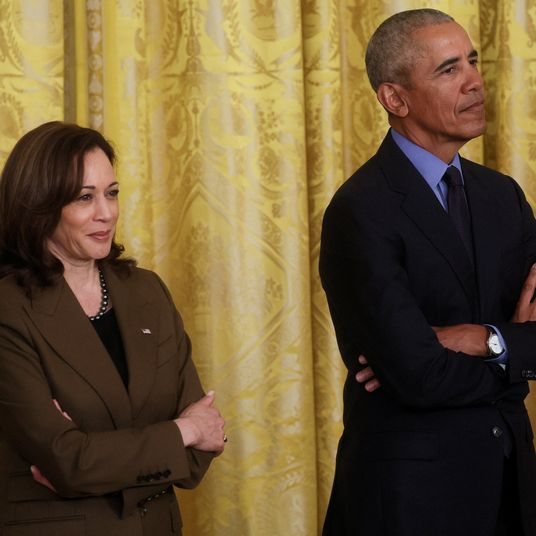
As Israeli forces bomb civilians in Gaza, American activists and politicians are turning toward other, more tempting subjects. Maybe you’ve heard by now: Elite schools are in chaos. Students fight and administrators dither while donors complain, and the powerful are paying attention. The House recently convened a hearing on campus antisemitism, and tales of the Ivy League topped the New York Times homepage on Monday.
“Cancel culture” is not a new fixation for the Times. But the stakes have arguably risen with the onset of war. Since the Hamas attack on October 7 that Israel said killed around 1,200 people and took another 240 hostage, Israel has killed over 17,700 people in Gaza alone, most of them civilians, according to Gaza’s health ministry. Thousands of children are among the dead and millions have been displaced from their homes. The Israeli strategy is one of collective punishment, which will neither defeat Hamas nor free all the hostages. The situation in Gaza demands moral urgency from the world. Though there are glimpses of courage in America, the sight tends to be fleeting. Gaza is bleeding while a coalition of American activists, some members of Congress, and now the press are focused on campus speech.
The spectacle has already pushed one college leader out of a job. On Saturday, Elizabeth Magill resigned as president of the University of Pennsylvania. She’d first come under fire in September when a Palestinian literary festival was held on campus. Critics accused speakers, including academic Marc Lamont Hill and Roger Waters, once of Pink Floyd, of antisemitism. (In Hill’s case, the evidence is thin. In 2018 he lost a role at CNN after calling for “a free Palestine from the river to the sea.”) Major university donors would eventually withdraw contributions after October 7, accusing Magill of an inadequate response to antisemitism on campus.
Magill’s resignation comes days after she appeared at a congressional hearing on the subject. In a viral clip, Representative Elise Stefanik of New York accused students who chant “intifada” of calling for the genocide of Jewish people and asked Magill, “Calling for the genocide of Jews, does that constitute bullying or harassment?” Magill said, “If it is directed and severe, pervasive, it is harassment,” adding, “It is a context-dependent decision, Congresswoman.” Stefanik pounced: “That’s your testimony today? Calling for the genocide of Jews is depending upon the context?” On Saturday, after Magill announced her resignation, Stefanik rejoiced. “One down. Two to go,” she posted on X, referring not just to Magill but to Dr. Claudine Gay, the president of Harvard, and Dr. Sally Kornbluth of MIT, who both testified at the same hearing.
Stefanik isn’t the only person who wants Gay and Kornbluth to lose their jobs. Her cause is championed by Bill Ackman, the billionaire hedge-fund manager and Democratic donor, and by conservative activists such as Christopher Rufo. On X, Ackman reposted a piece co-authored by Rufo, which accuses Gay of plagiarizing her doctoral dissertation. The conservative Washington Free Beacon said it uncovered additional examples. The Harvard Corporation called the examples “a few instances of inadequate citation,” said they did not amount to misconduct, and that Gay agreed to correct and update the works in question, according to the Harvard Crimson. On Tuesday morning, the board of Harvard announced that Gay would remain in office, dealing a blow to Stefanik, Ackman, and Rufo. The board of MIT has also said that it stands by Kornbluth.
Though Kornbluth and Gay appear safe for now, the underlying preoccupation with campus speech probably isn’t going away. Pro-Israel groups like the Canary Mission have smeared critics of Israel for years, and that effort is bearing fruit for them now. In a video on Substack, the writer and editor-at-large of Jewish Currents, Peter Beinart, argued that “the more difficult it becomes to defend Israel’s actions on the ground, the harder one needs to work to again create a new conversation about what’s happening among Israel’s critics.” There is no grand conspiracy, he said, and there is also real antisemitism in the U.S. “But the descriptions of the kind of antisemitism that is supposedly happening on college campuses, right, is completely divorced from actual reality,” he explained, adding later that “the struggle, it seems to me, to end Israeli impunity also is a struggle for academic freedom and free speech in the United States.”
Campus speech isn’t an entirely inconsequential subject. Stripped down to its most basic element, the debate over speech is a fight over power. Who gets to speak is shorthand for who matters. If opponents of the anti-Zionist left can silence it, they can defeat it. That dynamic is heightened on the elite campus because in theory, to win that territory is to remake the ruling class. How else to explain Stefanik’s gloating? The Republican representative from New York is no warrior against antisemitism. Her political opponents are “Soros-backed,” she sometimes says, which invokes images of a shadowy Jewish cabal.
Though the fight for free speech matters, actors like Stefanik and Rufo transform it into a farce. It’s Gaza, not Stefanik or even Magill, that should command America’s attention. As the Times publishes story after story on Harvard and Yale, Israel destroys Gaza’s schools and kills its academics. The bloodshed won’t slow without international pressure on Israel. Don’t lose sight of Gaza, or the innocent dead. They can’t afford a distraction.






























